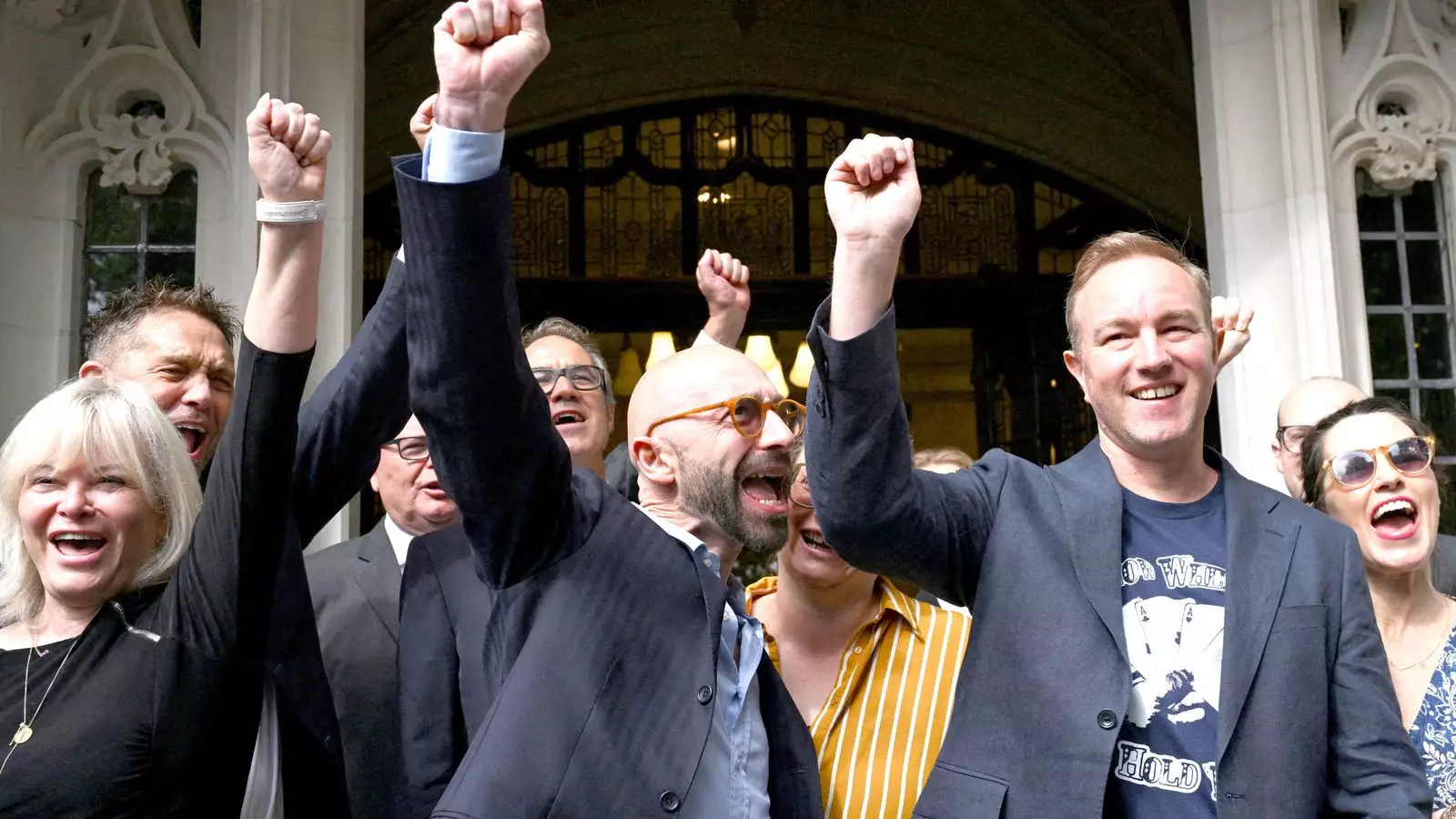The recent overturning of convictions against two traders accused of rigging benchmark interest rates exposes a troubling reality in the pursuit of justice within the financial sector. For years, the narrative painted these individuals as villains, symbolizing the excesses and ethical lapses of the 2008 financial crisis era. Yet, the Supreme Court’s decision reveals a complicated mess — one that questions whether the pursuit of accountability can sometimes distort actual justice. Their case underscores a fundamental flaw: the justice system’s susceptibility to misdirection, procedural errors, and possibly, a societal inclination to scapegoat under the guise of morality.
The original convictions of Tom Hayes and Carlo Palombo painted them as the embodiments of greed and recklessness. Hayes, a mathematician with autism, was crucified for manipulating Libor, becoming a symbol of Wall Street’s supposed moral decay. He served five and a half years in prison, a heavy price for a crime that was believed to have contributed to the broader financial instability. Palombo, a senior trader, received a four-year sentence. These sentences did not merely punish; they set a precedent that large-scale financial misconduct was punishable by severe penalties, potentially creating a chilling effect across financial institutions.
However, the Supreme Court’s intervention exposed that these convictions may have been rooted in flawed legal understanding and misapplied jury directions. The court clarified that there was “ample evidence” for conviction, yet it ultimately found that errors in jury instructions rendered those verdicts unsafe. This ruling is a stark reminder that justice is fragile and that procedural missteps can profoundly distort outcomes. It suggests that the law, in its current form, struggles to grapple with the nuanced realities of financial crimes — especially those that are as complex and systemic as interest rate rigging.
As much as the legal system seeks to uphold fairness, these cases highlight how procedural errors—such as misguided jury directions—can lead to wrongful convictions. The fact that the Supreme Court took the reins and quashed these convictions signals a potential shift in our collective understanding of justice: it must be meticulous, fair, and adaptable, especially when dealing with sophisticated financial operations that often blur legal lines. What’s disconcerting, however, is the implication that earlier courts may have swiftly condemned individuals based on presumptions rather than rigorous scrutiny.
Are We Just Scapegoating? The Broader Ethical Crisis
In examining the broader context, it’s impossible to ignore how societal narratives have cast Hayes and Palombo as “scapegoats” for more extensive systemic failures. And perhaps there’s truth to it: targeting individual traders provides a comforting simplification of the 2008 financial crisis’s complex roots. This narrative offers an easy scapegoat—a villain to blame for the systemic greed and deregulation that led to economic catastrophe.
But such simplification risks undermining the real causes of economic turmoil and distracts us from the necessity of systemic change. The fact that Hayes argued his actions were within the norms of his industry and condoned by his superiors raises pressing questions about the legal boundaries traders were operating within. If these actions were once considered acceptable, then solely criminalizing them now seems more like political posturing than genuine justice.
Furthermore, the case underscores how a punitive approach to financial misconduct can sometimes serve as a form of moral cleansing rather than genuine accountability. This obsession with punishment, driven by public outrage, might overshadow a nuanced understanding of the systemic flaws—those that allowed such misconduct to flourish and go unchecked. It’s a reminder that criminal justice should be about fixing systemic failures, not merely penalizing individual agents.
Justice or Political Showboating? A Need for Reflective Reforms
The overturning of these convictions should serve as a wake-up call. It exposes the urgent need for a more precise legal framework that accounts for the inherent complexities of financial markets. The current system, which relies heavily on jury perceptions and simplified legal definitions, risks rewarding superficial judgments over substantive truth. It’s evident that prosecutions driven by the desire for moral victories may ultimately do more harm than good—by eroding public trust in the justice system and neglecting the root causes of systemic misconduct.
Additionally, the case calls into question the effectiveness of regulatory and prosecutorial strategies. The Serious Fraud Office initially pursued charges that, in retrospect, may have been based on shaky legal grounds. The fact that Hayes, a highly skilled mathematician, could argue that his conduct was normative and legal at the time, suggests a fundamental disconnect between legal assumptions and operational realities in financial markets.
The legal saga reminds us that justice should not be weaponized for headline-grabbing victories. Instead, it calls for thoughtful reform—one that emphasizes systemic understanding, legal precision, and fairness over retribution. Ultimately, the case highlights yet again that justice, especially in the realm of financial misconduct, must be rooted in intricate legal analysis and a deep appreciation of the economic systems it aims to regulate. The danger lies in rushing to judgment, risking wrongful convictions, and serving a narrative of blame rather than truth.



Leave a Reply